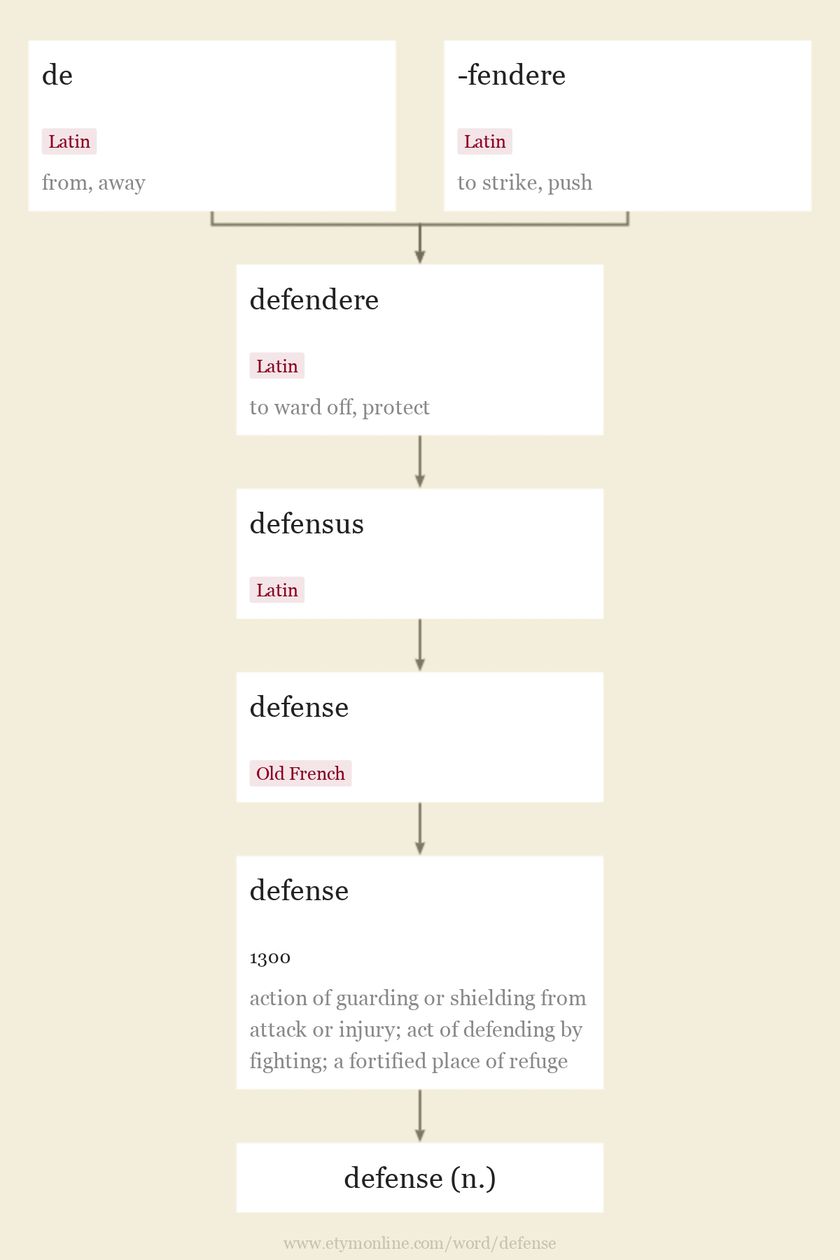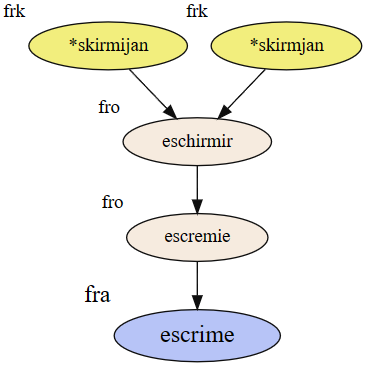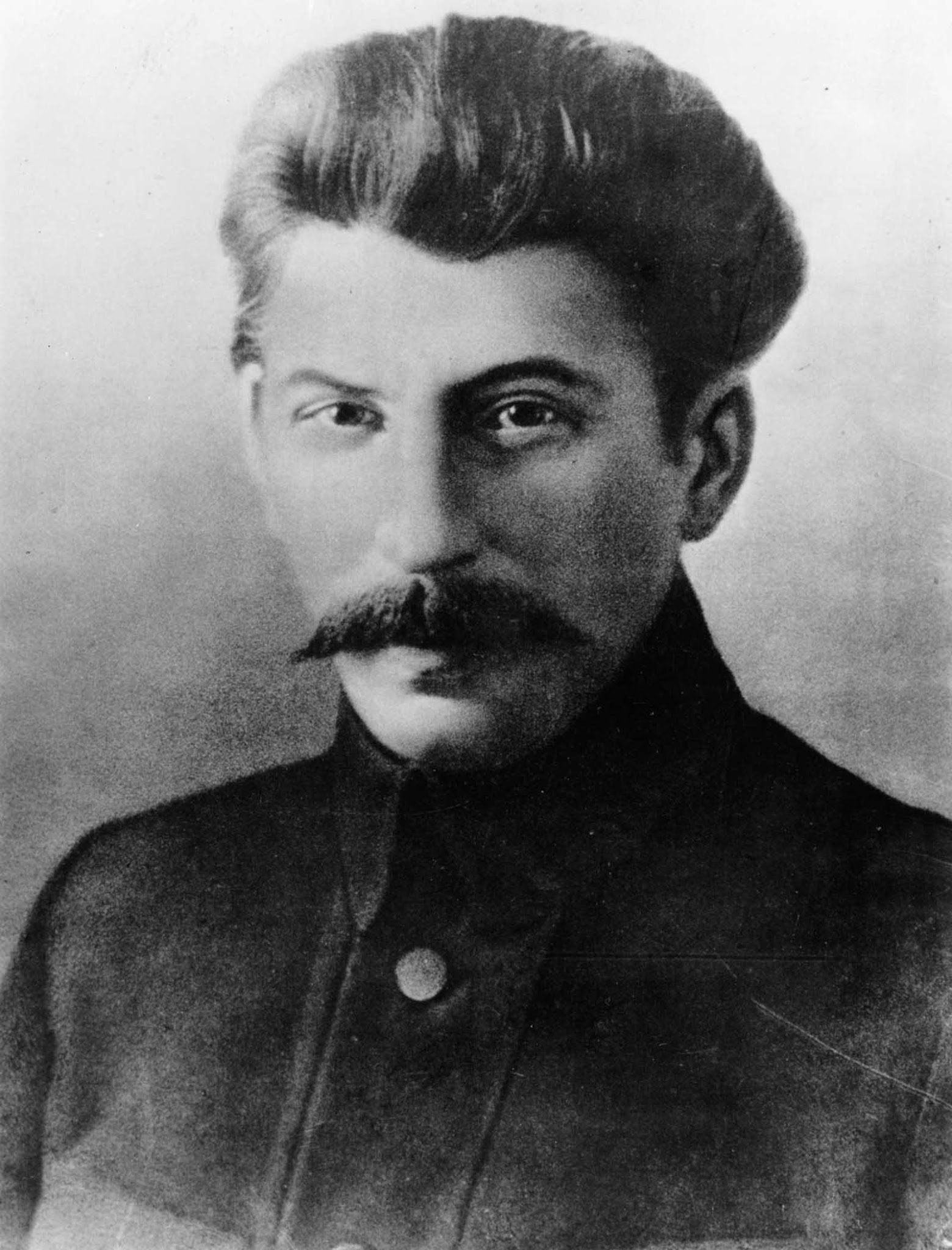An interesting bit of etymology that I learnt recently.
The English word “fencing” (as in sword fighting) comes from English “defence”, from Old French “defens”, from Latin “defendere”, meaning “to ward off, defend”.

The French word for fencing is “escrime”. The Italian and Spanish words are also close cognates with French. “Escrime” comes from Old French “escremir”, from Frankish “*skirmjan”.

That means English, a Germanic language, gets its word from Latin, a Romance language.
And the Romance languages of French, Spanish, and Italian get their word from Frankish, a Germanic language.
Essentially, the Romance and Germanic language families did a trade.
[vaguely related]
Fencing terms and names of fighting masters in The Princess Bride.
I love that the author went and searched this stuff out long before the interwebs were a thing.
https://combativecorner.wordpress.com/2010/11/11/fencing-language-in-the-princess-bride/
Read the novel if you haven’t. The screenwriter (William Goldman) wrote the novel as well, and it’s fantastic. It has depth to it that wouldn’t have worked in the movie.
I’m a huge fan of his.
Two of his works that got great movies; ‘Magic’ and ‘Marathon Man.’ imho both are as good as anything Hitchcock ever did.
He really understood what works on screen and on the page. It’s a rare trait to have mastered both as well as he did.
Here’s a great story. He was working with Michael Douglas on ‘The Ghost And The Darkness,’ They are both highly respected, very savvy film makers.
Douglas plays a mysterious stranger who appears halfway through the movie; white hunter type. The argument is do they give him a backstory? Douglas says peopel need to know who this man is, and goldman says that the story works better if he remains an enigma.
That’s why I love movies; there’s never a “right” answer.
I actually do HEMA, and have had a lesson or two specifically on Thibault. What the above analysis misses is that while Dutch, he lived at a time when Spain ruled over the Netherlands, and thus exported its distinctive style of fencing, known as La Verdadera Destreza (the main style I study). Whether Thibault “counts” as Destreza or not is a bit of a debate among Destreza practitioners, but at the very least his style shares a fair amount in common. Most crucially for our purposes, is the extensive use of non-linear (i.e., circular) footwork, which, according to Destreza authors like Caranza and Pacheco, is ideal for countering the direct lunge popular with the Italians.
The article’s talk about high ground could be correct. I’ve not studied nearly enough Thibault to refute it myself, though I did note a comment under the article from someone who seems to have read it and refuted that claim. Regardless, it’s not necessary for the dialogue to make sense.
I did a little broadsword and shield fighting long, long ago. I never actually read those books. Here’s a link to a woman on Youtube. she’d done a lot of stage fighting and really knows her stuff.
Enjoy!
Unfortunately, she’s also a transphobe
https://www.youtube.com/watch?v=xfMFRdL_gTI
(I actually hadn’t seen that video before just now, and am watching it as I write this. I stopped following her in 2022 after she did a crossover with Tom Scott, which led to wider attention on her transphobia, and to her being dropped from Nebula. I assume the video will cover those, but it’s the discussion from at that time which I was already familiar with, not anything more recent.)
It never came up in any of the videos I watched. I’ll delete my comment.
Yeah, I think she’s learnt to keep her politics outside of her actual videos. She doesn’t want the broader audience knowing about how transphobic she is, because, well…many of them would stop watching.
It’s tweets, blog posts, Patreon, and the like, instead. Where only the most hardcore fans will see.
Well, “skirmjan” has still made its way into English I believe, isn’t it the etymology for “skirmish”?
Removed by mod
Neat.
Is there a connection of the Frankish (or Latin) to PIE?
There’s always a connection to PIE (or seems to be). I’m curious if both words connect there somehow.
Yes, exact placement of sub families (and existence of italo-celtic) are debated, but it is definitely part of PIE

Edit: as for these two words, they are reconstructed as coming from different roots, skirmjam from *(s)ker. (Meaning to cut, Shear in modern English), and fendere from *bʰeyd (meaning to split, bunch of words in modern English)




